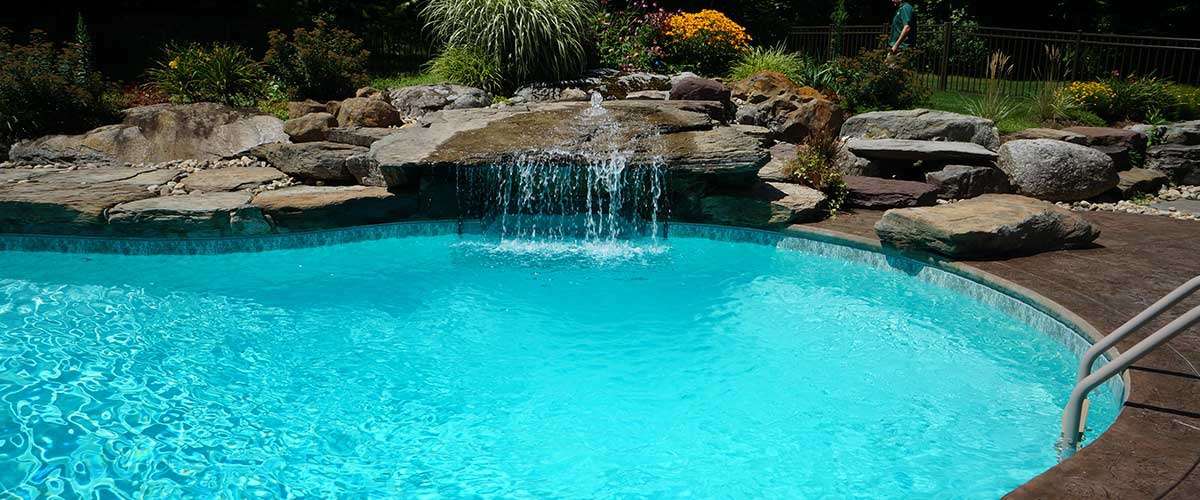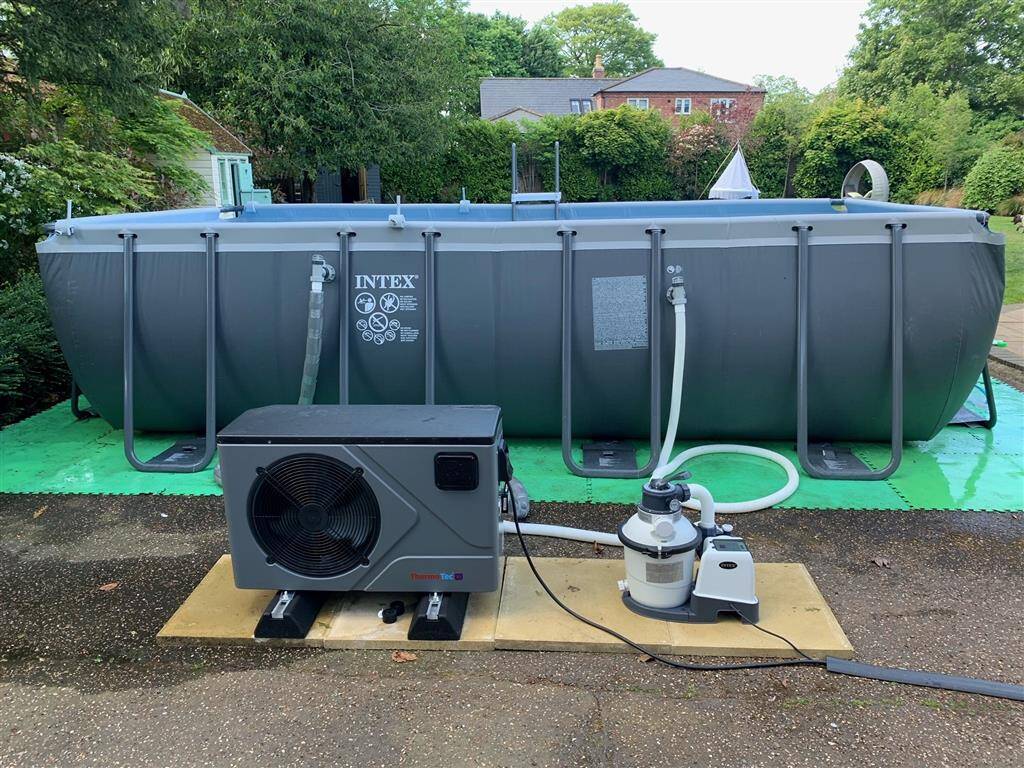How to Effectively Pool Heizen
Pool heizen, or heating your pool, is essential for enjoying a comfortable swimming experience year-round. By utilizing various heating methods, you can extend your swimming season and ensure consistent water temperature. This article explores the best practices for pool heating, focusing on efficient methods, installations, and maintenance, ensuring that you can enjoy your outdoor oasis in any weather.
Importance of Efficient Pool Heating
When it comes to enjoying time in the water, **pool heating** plays a crucial role. Swimming in cold water not only decreases enjoyment but can also lead to health issues, especially for young children or individuals with sensitive health conditions. Efficient **pool heating** allows you to maintain a *comfortable swimming temperature*, promoting better hygiene through regular use and encouraging more frequent visits. Moreover, with the right pool heating system, you can lower energy costs and increase sustainability in your outdoor practices.
Types of Pool Heaters
There are several types of **pool heaters** to choose from, each with its own set of advantages. **Solar pool heaters** harness the sun’s energy, making them an environmentally friendly way to warm your pool. They work best in sunny climates and can significantly cut down on energy costs. Another option is electric heat pumps; these systems work by extracting heat from the air, making them efficient but dependent on outdoor temperatures. Lastly, gas heaters provide high heating output, making them suitable for quick heating needs, although they can be expensive to operate in the long run.

How to Choose the Right Heater for Your Pool
Selecting the right heater depends on several factors, including your pool’s size, desired temperature, and climate. For smaller pools, a **solar heater** may be sufficient, while larger pools might require a more potent solution. It’s also essential to consider installation costs and the maintenance needs of various systems. Consulting with a professional can help determine the best heating system that meets your requirements, allowing you to avoid common pitfalls like over or under-sized systems.
Case Study: Installation of a Solar Pool Heater
In a recent project involving a residential property with an extensive outdoor pool, the homeowners opted for a **solar pool heater installation**. After evaluating the space and orientation of their backyard, the installation team recommended a system with a collector area sufficient to heat their 20,000-gallon pool effectively. The outcome? A consistent increase in water temperature by up to 10°F, enabling the family to swim comfortably during early spring and late fall months.
Tips for Maintenance and Energy Efficiency
Maintaining your pool heating system is critical for its efficiency and longevity. Regular **maintenance** includes cleaning filters, checking for debris around equipment, and ensuring solar collectors are unobstructed. Adjusting the heater settings based on the pool usage can also lead to more significant energy savings. For solar heaters, make sure they are positioned correctly to optimize sunlight exposure, especially in shaded areas, to maximize their performance.
Regular Maintenance Practices
To maintain a well-functioning **pool heater**, adopting a systematic maintenance routine is essential. Every month, assess the filters for any clogs and remove debris that may hinder performance. It is also advisable to routinely inspect the system for leaks or damages, as early detection can save you from costly repairs later on. Almost every winter, ensuring that **thermal blankets** are laid on the pool can significantly reduce energy loss during colder months, preserving heat and reducing required heating time.
Setting Your Pool Temperature Wisely
Finding that sweet spot for your pool’s temperature can save energy and prolong equipment life. Aim for a moderate temperature; generally, **78°F** is ideal for most swimmers, providing warmth without overexerting your heating system. During particularly warm days, consider turning down the thermostat or taking advantage of cooler evenings. This practice not only preserves energy but can lead to lower utility bills over time.

Energy-Efficient Technologies
New advancements in **pool heater technology** are making it easier to heat your pool efficiently. For instance, **smart heaters** enable homeowners to control their systems via apps, adjusting temperatures according to real-time data about weather conditions. Investing in an energy-efficient model can greatly reduce your carbon footprint, making it a greener alternative. By upgrading obsolete systems to incorporate technologies like variable-speed pumps and enhanced insulation, you further increase efficiency and save energy costs.
Conclusion
In summary, effective pool heizen is vital for an enjoyable, year-round swimming experience. By understanding the various options available, maintaining your pool heating system, and adopting energy-efficient practices, you can significantly enhance your pool experience. Remember the importance of routine checks and utilizing technology for energy savings. With the right information and actions, your pool can be a constant source of joy, regardless of the season.
FAQ
1. How much does it cost to install a solar pool heater?
The installation cost of a solar pool heater typically ranges from $3,000 to $8,000, depending on the size of the system and your specific pool setup. Along with installation costs, expect ongoing maintenance expenses, though overall energy savings can offset these initial investments over time.
2. What is the average temperature for swimming pools?
Most people find a comfortable swimming temperature to be around **78°F**. This temperature allows swimmers to enjoy their time in the water while avoiding any chill that could lead to discomfort.
3. Can I use a gas pool heater with a solar system?
Yes, many homeowners choose to combine a **gas heater** with a solar pool heater for more flexibility. This hybrid approach allows you to sustain a comfortable temperature regardless of sunlight availability, ensuring you can use the pool at any time.
4. How long does it take to heat a pool with a solar heater?
The time taken to heat a pool using a **solar heater** can vary widely, depending on the solar collectors’ size, sun exposure, ambient air temperature, and the pool’s current temperature. On average, it can take anywhere from several hours to a few days to reach the desired temperature.
5. Are electric heat pumps more efficient than gas heaters?
Electric heat pumps are generally more efficient than gas heaters for pool heating, particularly in milder climates. They transfer heat rather than generating it, thus requiring less energy. However, performance may decrease in cooler temperatures as the heat source may not be sufficient.
6. Is it possible to heat an above-ground pool?
Absolutely! Heating an above-ground pool can be done with any **pool heater** type, including solar, gas, or electric. It’s crucial to choose a system suitable for the pool’s volume and to consider insulation to enhance the heating effectiveness.
7. What maintenance do solar pool heaters require?
Solar pool heaters require regular maintenance, including cleaning filters, checking for damage, monitoring water flow and pressure, and ensuring that solar panels are unobstructed by debris. Proper maintenance will help to extend their lifespan and keep them operating at peak efficiency.
